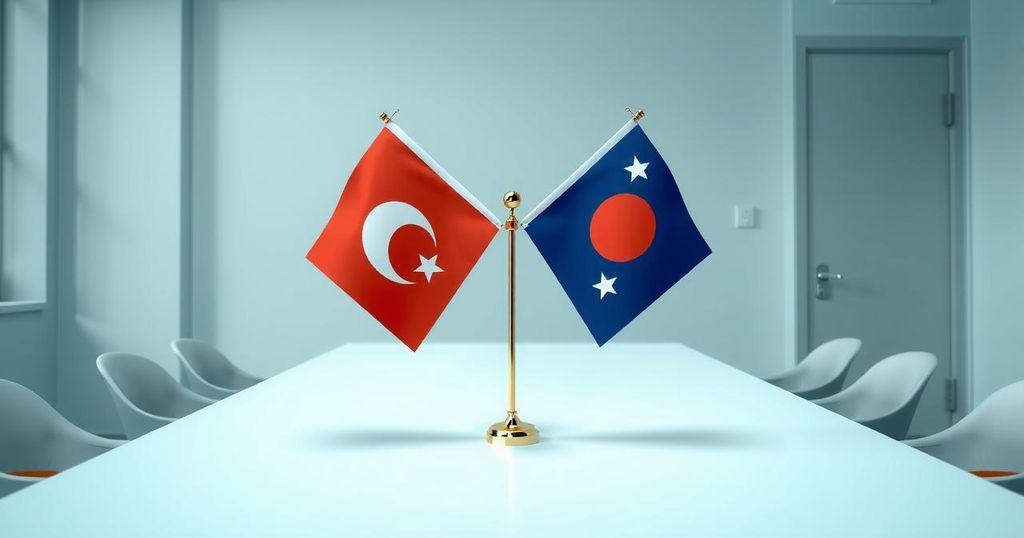Rwanda and DRC Presidents held unexpected ceasefire talks in Qatar following failed peace negotiations in Angola. Both leaders expressed commitment to an immediate ceasefire and discussed the importance of direct political dialogue. The M23 group’s recent withdrawal from discussions highlights ongoing tensions, exacerbated by sanctions from the EU.
The Presidents of Rwanda, Paul Kagame, and the Democratic Republic of the Congo (DRC), Felix Tshisekedi, convened unexpectedly in Qatar to discuss a ceasefire following unsuccessful peace negotiations in Angola. This meeting aimed to reaffirm both leaders’ commitment to an immediate and unconditional ceasefire, as previously agreed at an African summit. According to a joint statement, the talks are intended to enhance stability in the DRC and its surrounding region, fostering a secure future for all parties involved.
The leaders addressed the urgency for “direct political dialogue” to tackle the underlying issues causing conflict in Eastern DRC. It was conveyed that both heads of state had a productive discussion, building trust for collaborative efforts moving forward. Furthermore, a representative from the DRC underscored that the meeting details were kept confidential until President Tshisekedi returned to Kinshasa, confirming the agreements reached.
Prior to this meeting, peace talks in Angola were abruptly cancelled when the Rwandan-backed M23 group withdrew, accusing international institutions, including the European Union, of undermining peace initiatives. The M23 claimed that sanctions against its members hindered meaningful dialogue and ultimately led to their withdrawal from discussions.
The European Union’s sanctions targeted several Rwandan military commanders and the head of its mining agency for their support of the M23 in clashes in Eastern DRC. Reports indicate that the M23’s offensive, which started in January, resulted in the capture of significant cities as well as thousands of casualties, posing a severe humanitarian crisis.
Despite Kigali’s denial of military support to the M23, it contends that it faces threats from Rwandan Hutu militia groups, particularly the FDLR, founded by perpetrators of the 1994 genocide. The tension between the DRC and the M23 group highlights a complex regional conflict amid efforts for a peaceful resolution, which have seen little success since the last direct talks in 2013.
The surprise talks between the Presidents of Rwanda and the DRC in Qatar marked a pivotal moment for peace efforts in the region. The commitment to an immediate ceasefire and future dialogues reinforces hopes for stability. However, the ongoing sanctions and recent escalations by the M23 complicate the prospects of a lasting resolution. Future efforts will need to address the deep-rooted causes of conflict to achieve sustainable peace in Eastern DRC.
Original Source: www.hindustantimes.com




